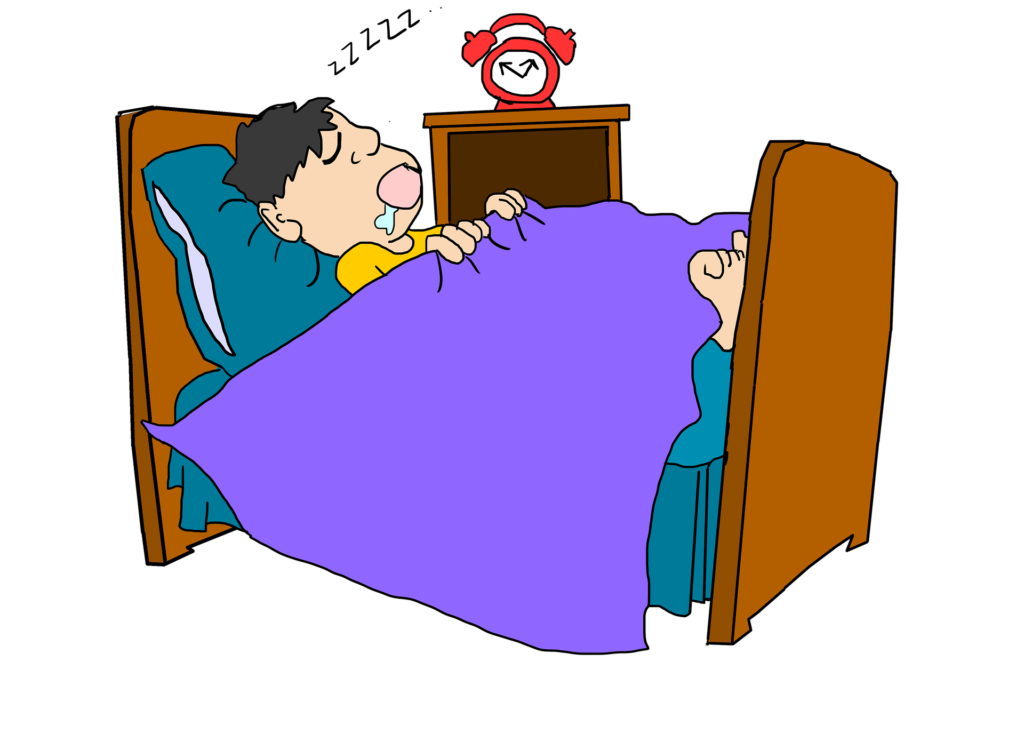We all know someone who snores. It might just be the person in the mirror. Snoring is very common and it does not discriminate between ages, ethnicity or genders. According to John Hopkins medicine, about 45 percent of adults are occasional snorer while 25 percent snore more regularly. Snoring does not usually indicate a serious health concern and majority of the time it is purely due to lifestyle factors.
Snoring is not just restricted to humans, it affects animals, such as dogs, cats, horses and other mammals too. Snoring is usually harmless but can be troublesome for people who we share the room with. But what is the cause of snoring? What can we do to prevent it? is there any scientifically proven treatments of snoring? Keep reading and you will find answers to all these questions.

What Causes Snoring?
In simple words, snoring is the sound our tissues make when air can not freely pass through our nose and throat while sleeping. Reduced muscle elasticity, enlarged tissues of throat or large palate or long uvula can cause air not to pass through freely. Which, in turn, makes the surrounding muscles to vibrate, and produces the sound we hear when snoring. Sometimes, if the tongue is not positioned properly can also obstruct normal breathing and cause snoring.
Snoring is very common in young children but usually goes away once they grow older, especially in boys. If you or your child snores, it may be caused by allergies, a cold or another respiratory problem.
Allergies, sinusitis, nasal congestion or swelling in the nose can also lead to snoring. Natural phenomenon is to breathe through our nose when we sleep. However, when nasal passage is not clear, we are forced to breathe through our mouth. The soft palate and the cone shaped hanging tissue mass on the back of our throat, called uvula, normally relaxes when we sleep. When nasal path is obstructed, it causes the air to create pressure in the throat, causing the soft tissues to start vibrating and making the snoring sound.
There are numerous other reasons why snoring might occur, including:
- lifestyle factors like drinking excessive alcohol and smoking
- a reduced air way
- anatomical structure issues like a small jaw or large tonsils
- sleep apnoea (when your breathing stops periodically while you’re sleeping)
- health conditions like obesity, allergies, and colds Study suggests, snoring is comparatively more present in people aged over 40 and affects more males than females.
Why should you treat snoring?
Except the fact that your room partner will enjoy more sleeping next to you, there are variety of reasons why remedying your snoring might be useful:
-It helps improve quality of sleep
-It helps improve quality of breathing
-It benefits your overall health – better breathing and better sleep improves are overall health.
How to treat snoring?
So now that we have understood the science behind causes and contributory factors of snoring, let’s discuss about the treatment options:
Lose weight – Your body will thank you once you lose extra weight. Being obese or overweight put you at increased risk of developing many health conditions including, high blood pressure, heart problems, diabetes. It also increases the probability of snoring. Even if you have good BMI, having excessive fat around your throat or neck area can increase the risk of snoring. Little bit of exercise and overall weight reduction can sometimes be the only thing you need to prevent or even treat snoring. You don’t have to lose large amount of weight to experience the full benefits. Losing weight not only improves your overall health but it also helps with snoring. A study conducted on 20 obese men saw a drastic improvement in snoring with just 6.6 pounds weight reduction.
Sleep on your side – Changing sleeping positions is probably one of the best and natural ways to eliminate snoring from your life. Muscles in your throat gets relaxed when you sleep on your back and your tongue also falls back in this position. It can obstruct the air flow and cause snoring. Changing sleeping positions such as raising your head by using an extra pillow or just simply by sleeping on side can help treat snoring. There are number of ways you can train yourself to sleep on your side. Just simply attaching a tennis ball on the back of your top (t-shirt or night suit). You can use a sock and put the tennis ball inside and attach it to your top. If you turn on your back while sleeping, the discomfort due to tennis ball will make you go back on your side. Regular practice will train your body to sleep on side and eventually eliminate the tennis ball (or any other sleep aids) from your life.
Avoid alcohol before bedtime – Alcohol is a known to relax muscles. It is a central nervous system (CNS) depressant. Which means, it slows down the CNS and the body organs controlled by CNS. When you drink alcohol in large amount especially in the evening, its sedative effect relaxes the throat muscles and increases the chances of snoring. Alcohol also has diuretic properties, which means that it causes our body to excrete more fluid via urination. Frequent urination can lead to dehydration. Dehydration can cause tension in throat muscles and reduce its tonicity. As discussed above, if throat muscles are tensed or have less tonicity, it can obstruct the air flow and lead to snoring. So, if you are serious about stopping snoring, it will be best to avoid alcohol consumption in excess, especially in late evening.
Try wearing an anti-snoring mouthpiece – As discussed earlier, snoring occurs due to obstruction of air flow through nasal passage. Sleeping on your back causes your tongue to roll back. It becomes similar to a saggy balloon whose air has been removed. Anti-snoring devices works by keeping the air ways opened. There are number of anti-snoring devices available to place between the jaws and anti-snoring strips to keep the airways uninterrupted. You can easily find these products at majority of pharmacies or online at Amazon or eBay. The main thing to consider when buying anti-snoring devices is to ensure they are FDA approved.
Try special pillow designed to help reduce snoring – You can buy special pillows designed to help ease snoring. The mechanism of these pillows is similar to anti-snoring devices to keep the airways opened while sleeping. They work by keeping your head elevated so that tongue don’t roll back too much and muscles don’t get too relaxed. This ensures smooth air flow and uninterrupted breathing.
Surgery – In some severe cases, surgery is necessary to treat or at least alleviate symptoms of snoring. Surgery is performed under local anaesthetic and usually need few treatments. It is an outpatient procedure and you will be sent home same day after the surgery. Small incisions are made into the soft palate or may even be required to remove uvula. This treatment aims to reduce or stop the vibrations between the tissues, hence prevent the familiar annoying sound.
Antihistamines – If snoring is due to nasal congestion or allergies in respiratory tract, it is worth trying an antihistamine. If you suffer from a medical condition, it is advisable to seek medical advise before you start antihistamines.
Mild snoring is usually harmless and does not indicate any health concern. However, if snoring is severe and does not go away after trying all natural methods, it could be a sign of something serious such as sleep apnoea. Sleep apnoea is a serious sleep disorder accompanied by periodic irregular breathing. Suspected sleep apnoea should be investigated and treated under medical supervision.

